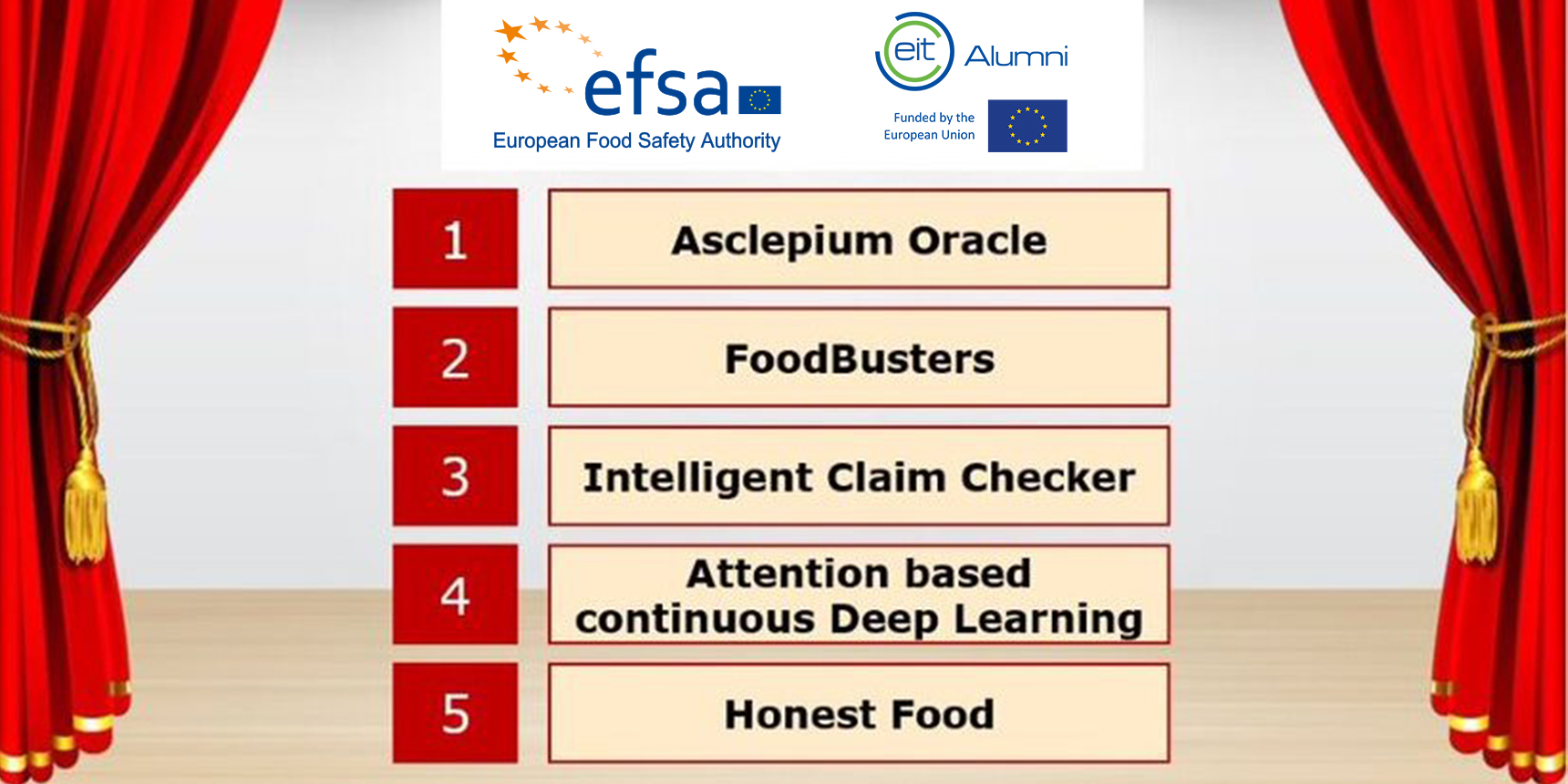Meet the winners of the Hackathon launched by the European Food Safety Authority (EFSA) and EIT Alumni

As a result of the collaboration between the European Food Safety Authority (EFSA) and EIT Alumni, a Hackathon contest for the Design of an Artificial Intelligence solution to detect fake news using EFSA’s body of scientific opinions was organised.
The overall objective of this contest was to enhance some of the EFSA key values, such as openness and innovation in order to enable stakeholders to understand the basis of EFSA’s scientific work in an innovative manner and engage a wider community around it.
The specific objective of the hackathon was to come up with a prototype of an Artificial Intelligence (AI) solution to detect fake news in the area of Food and Feed Safety, leveraging the whole EFSA’s body of Scientific Opinions, from its foundation to present days.
On 20 February 2021, the opening session of the online hackathon took place with Jeroen van Lent, President of the EIT Digital Alumni Foundation as well as Vice President of EIT Alumni, Barbara Gallani, Head of EFSA’s Communication, Engagement, and Cooperation Department and Jan Grotenbreg, developing and managing the DeepHack open innovation programme at EIT Digital.
The participants had a full weekend on 20 and 21 February of hacking and creating their solution. Teams were tasked to analyse shared statements such as ‘Excess salt is your deadly enemy’ or ‘One cup of coffee can improve your focus’ and provide a credibility score based on proposed solution. Once the weekend was over the jury took over and started the evaluation of all submitted solutions.
The Award Ceremony took place on 19 March 2021 with Bernhard Url, EFSA Executive Director and Martin Kern, EIT Director.
We need to build a community around methods to detect fake news. This is not only to secure scientific information is not superseded by a swamp of fake stories. The danger of disinformation goes much further: it undermines trust in the democratic institutions and it is an assault on the open society.
Bernhard Url, EFSA Executive Director
The role of the hackathon was to leverage the best brains in the European Union and to ignite interest to the topic of fake news together with proposing remedies for this phenomenon.
Martin Kern, presented the role of innovation as such in tackling societal challenges as well as the role of collaboration between EU agencies, including the engagement of the EIT Alumni.
Innovation happens if you work together. If you go outside the boundaries, outside your comfort zone, if we work with people you normally would not work with and if you try new ideas.
Martin Kern, EIT Director
The importance of artificial intelligence technology in driving innovations was outlined in the context of growing numbers of EIT projects in this field and across different sectors.
Top 5 solutions
- First prize EUR 7 000: Asclepium Oracle team of 10 members from Universitat Autònoma de Barcelona
- Second prize EUR 6 000: Food Busters team with Zacharoula Theodorakopoulou, Timotheos Lanitis, Simona Mladenova and Mihalis Papakonstantinou
- Third prize EUR 5 000: Dane Mitrev and Luca Coviello, EIT Digital Alumni
- Fourth prize EUR 3 500: Marvin Mouroum, Lauri Laatu, Mayank Yadav and Jonathan Smyth, EIT Digital Alumni
- Fifth prize EUR 3 500: Honest Food team with Alettea Tordai from EIT Digital Alumni and Dim Hoogeveen


 Share this page
Share this page


